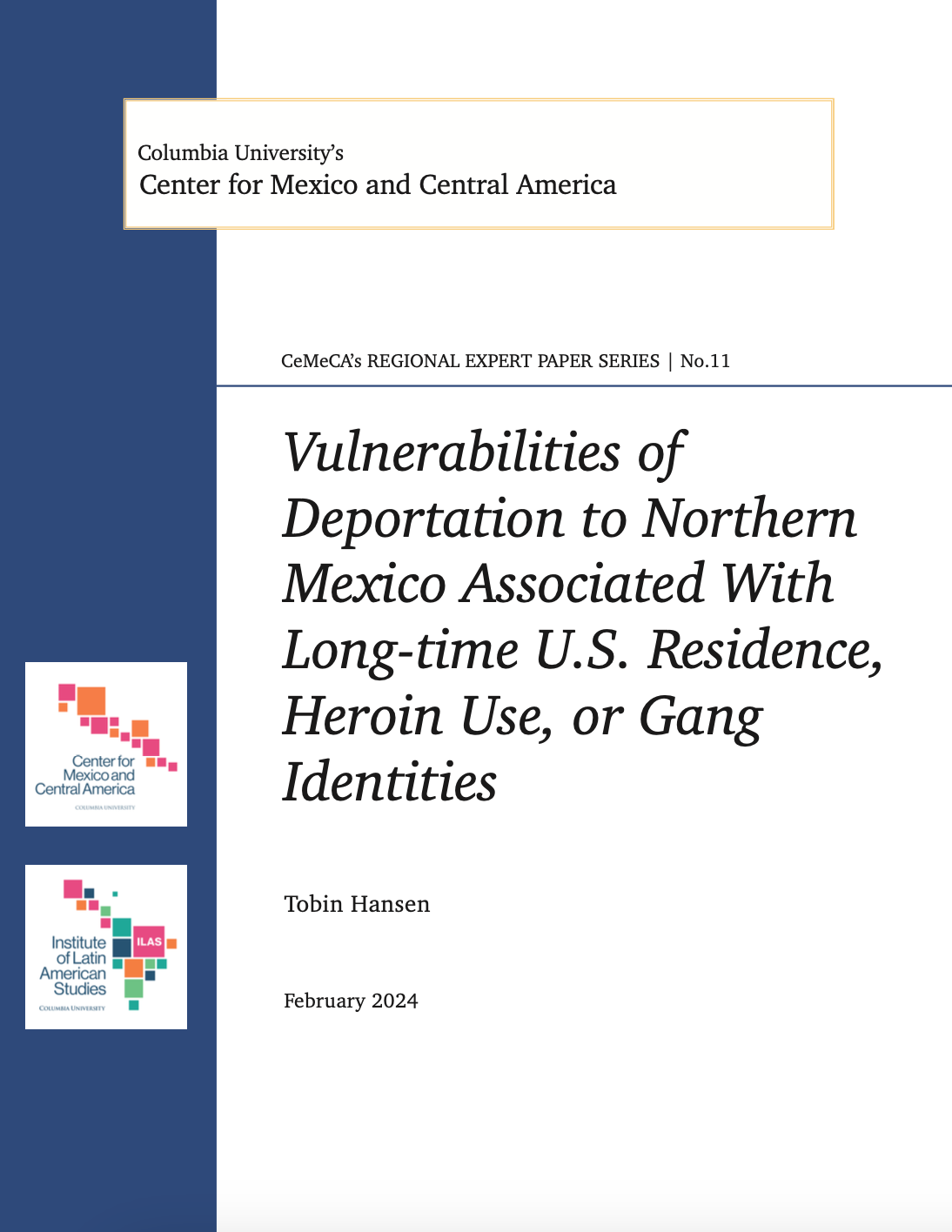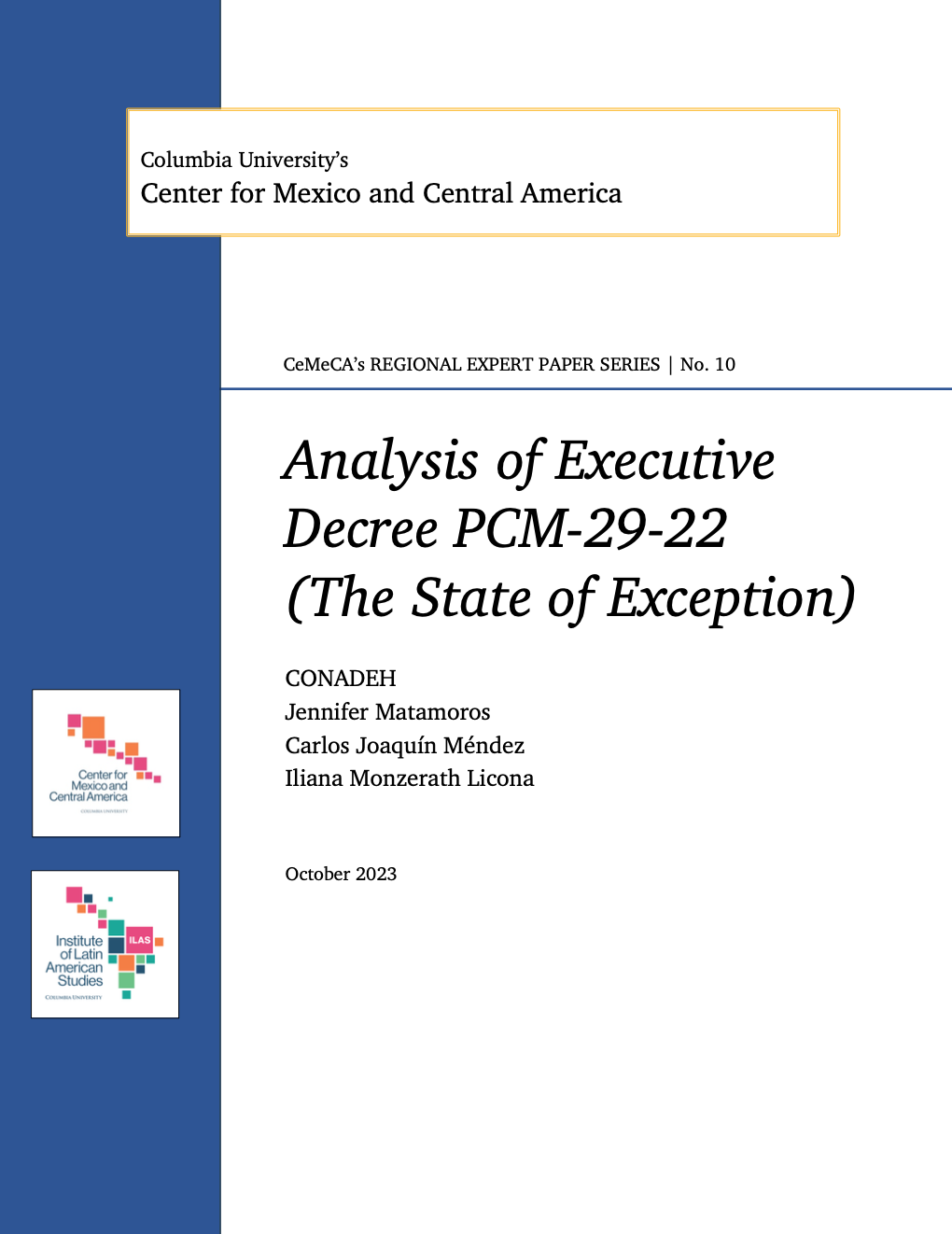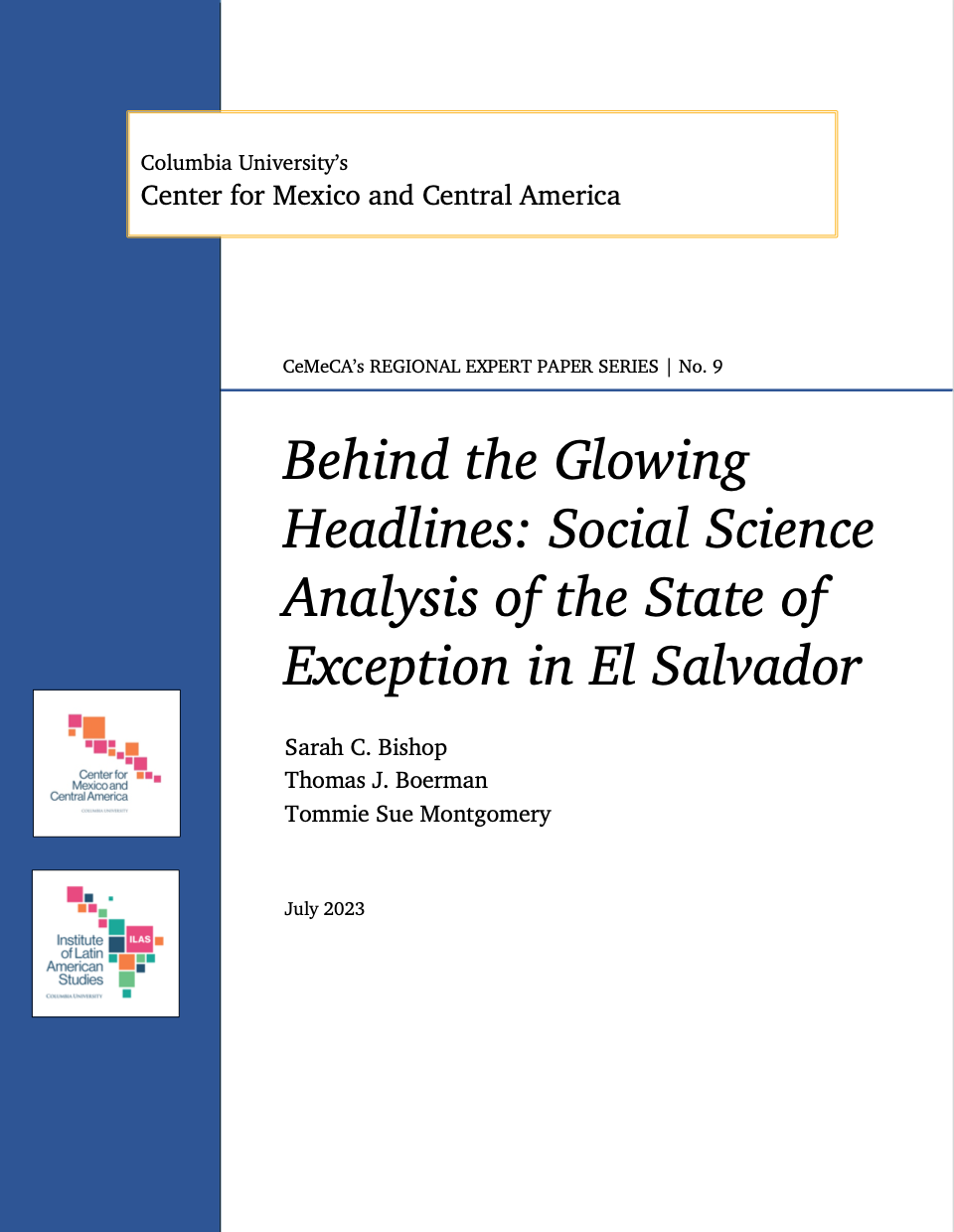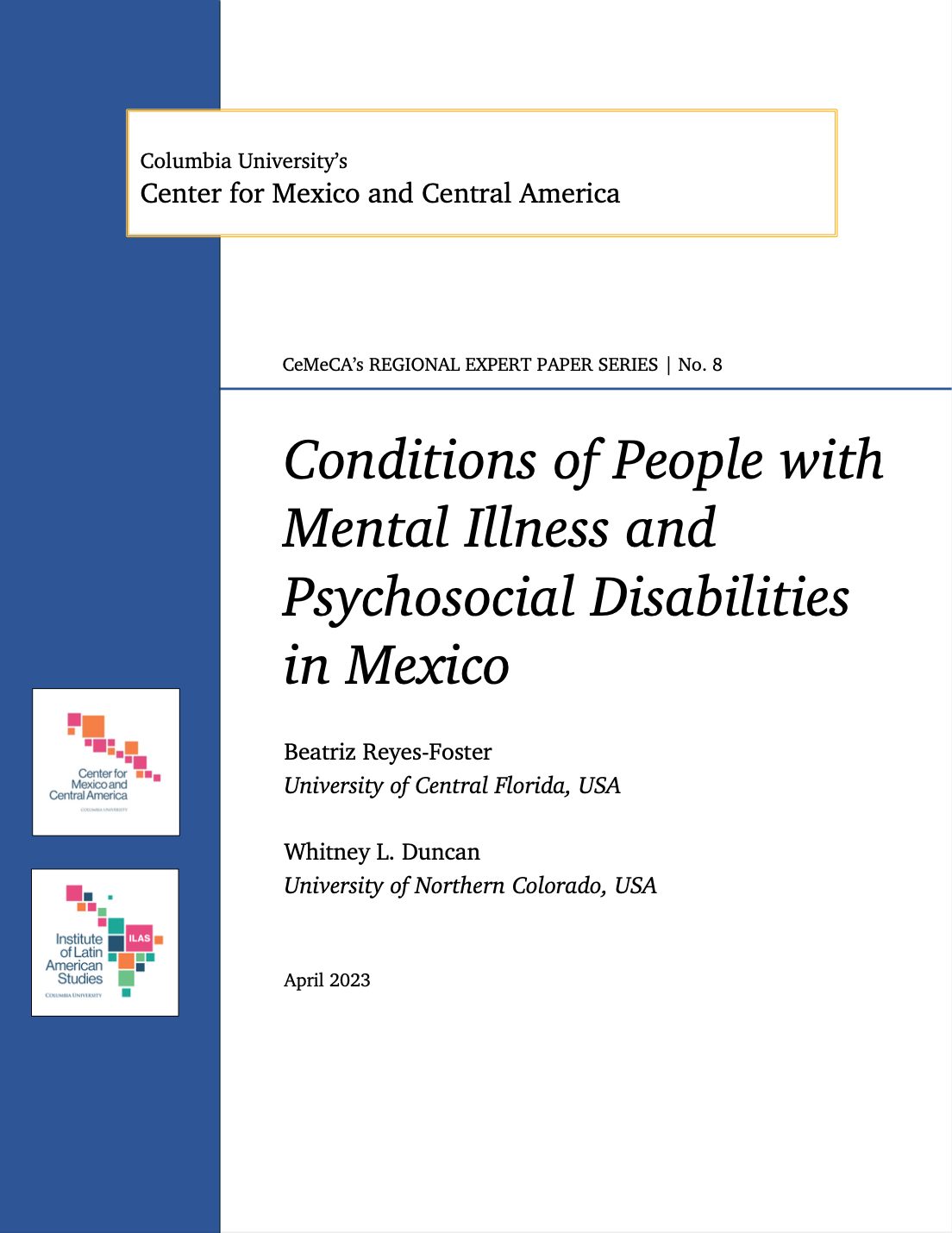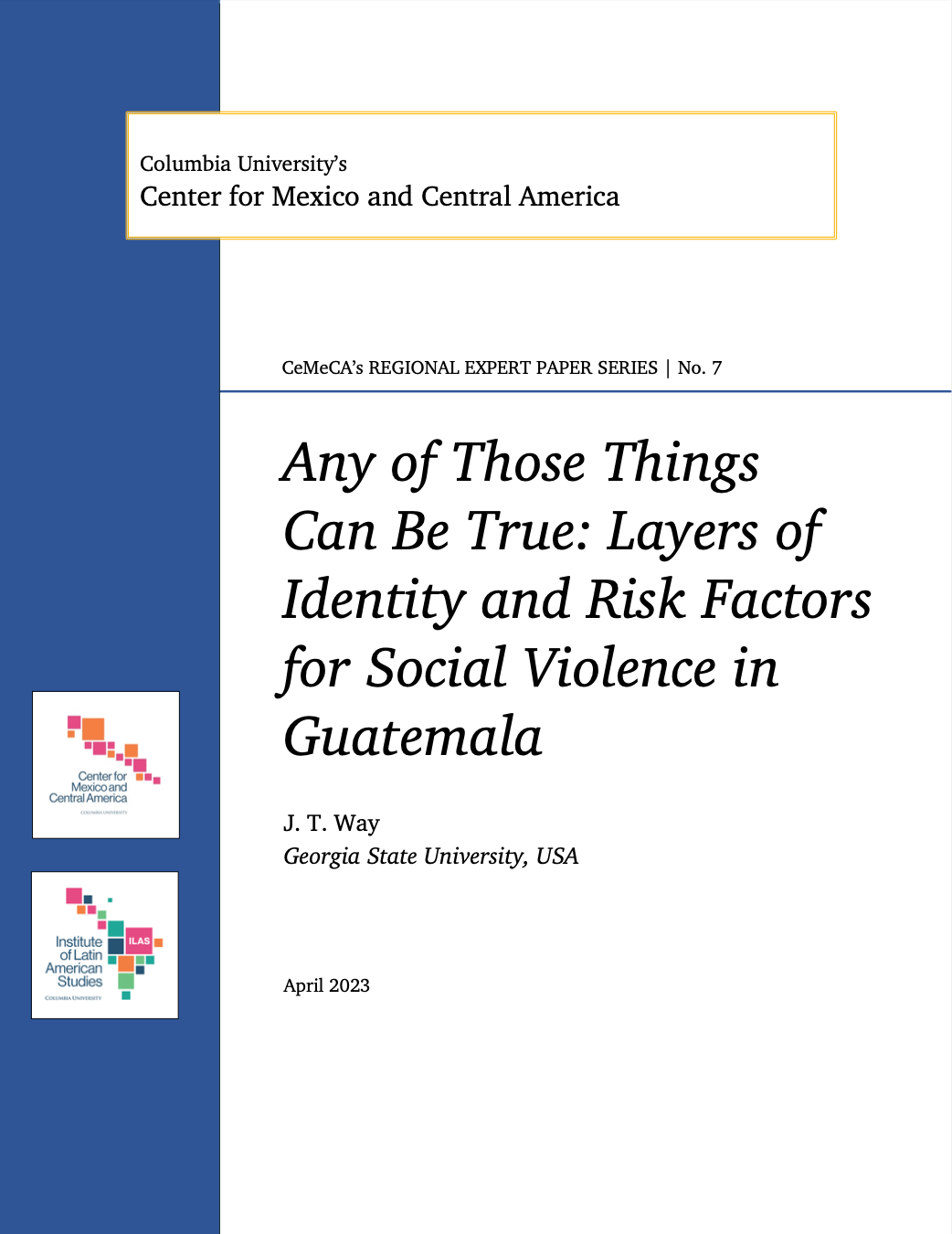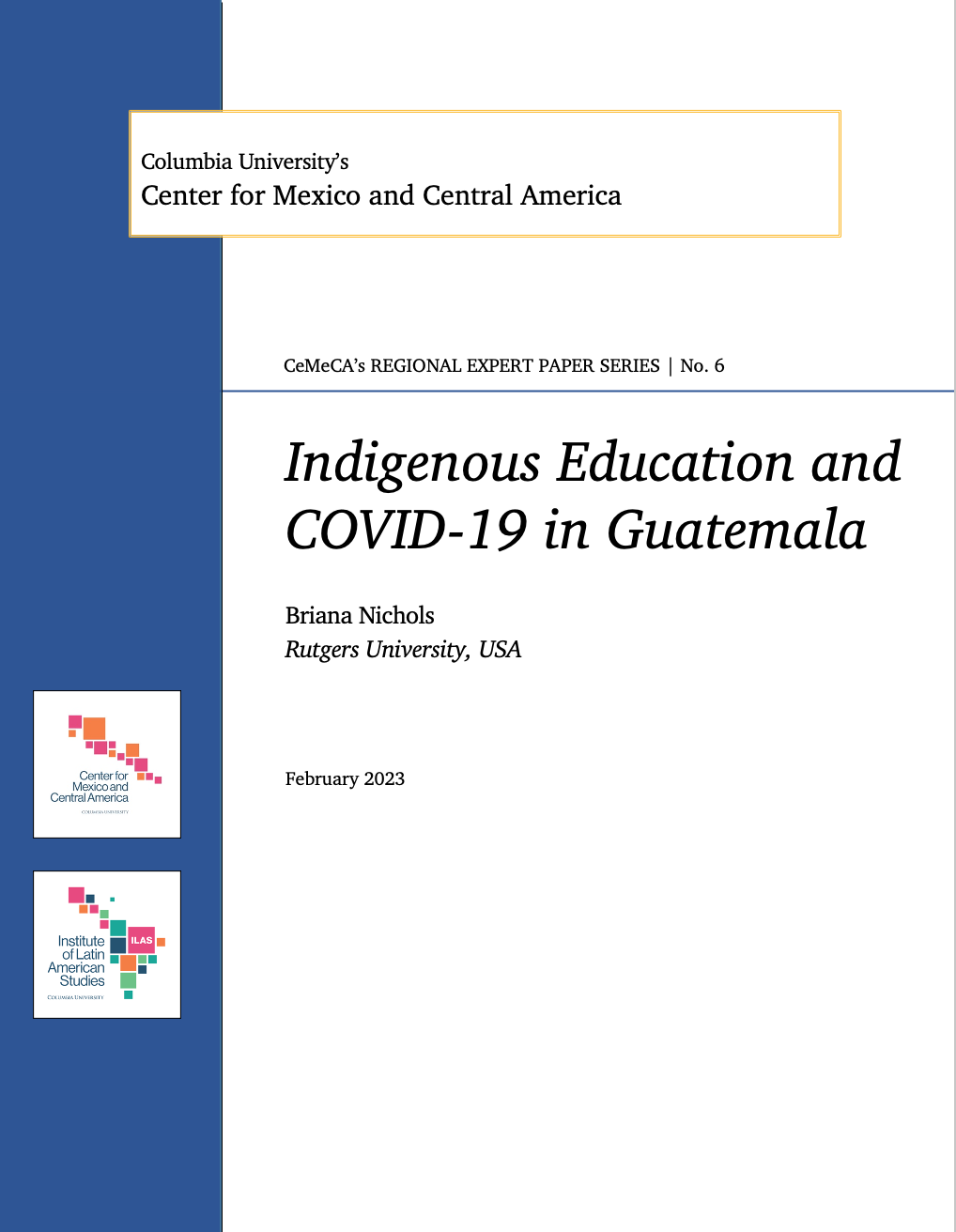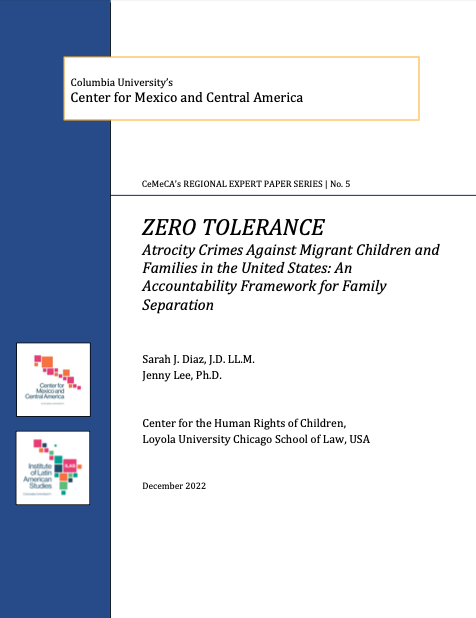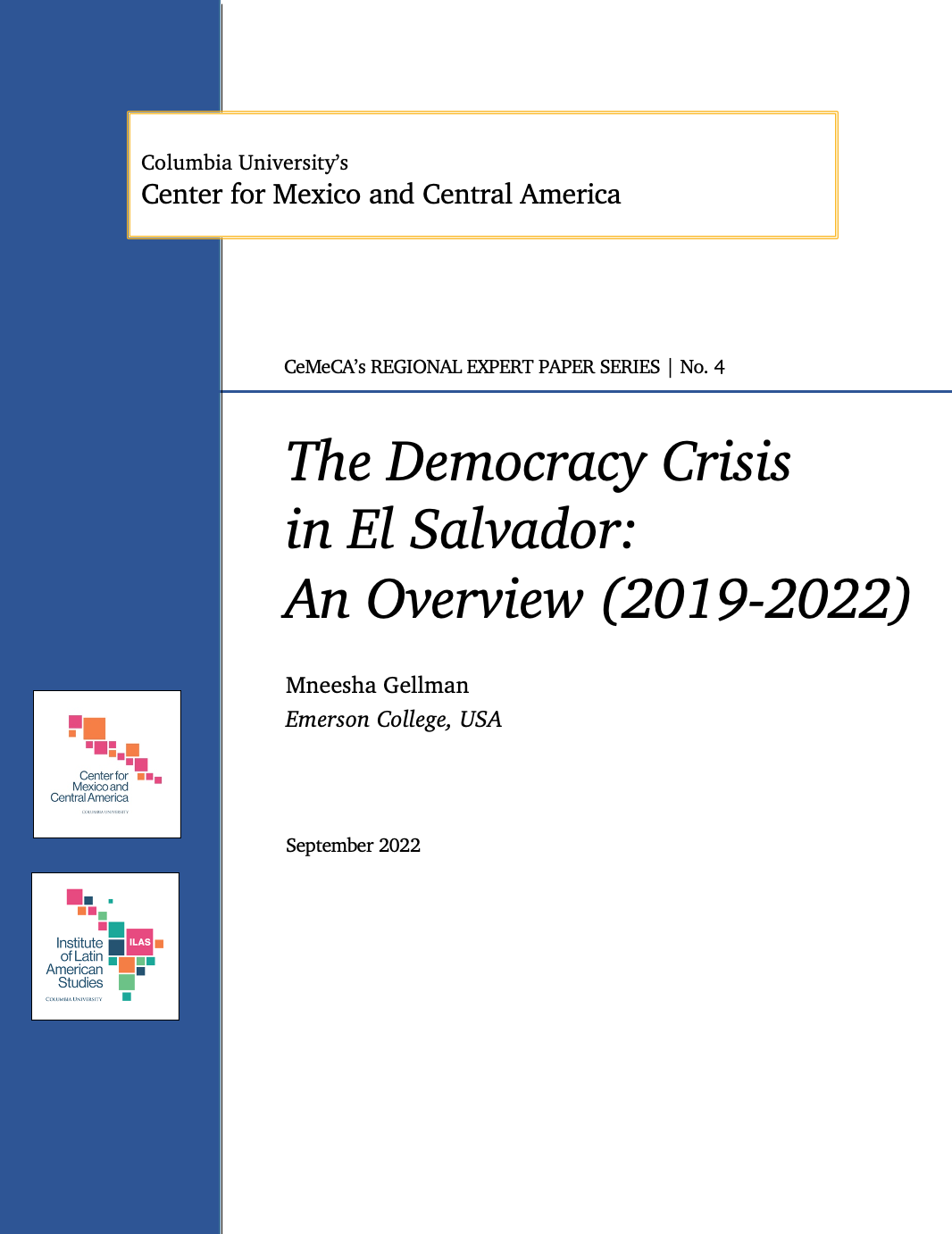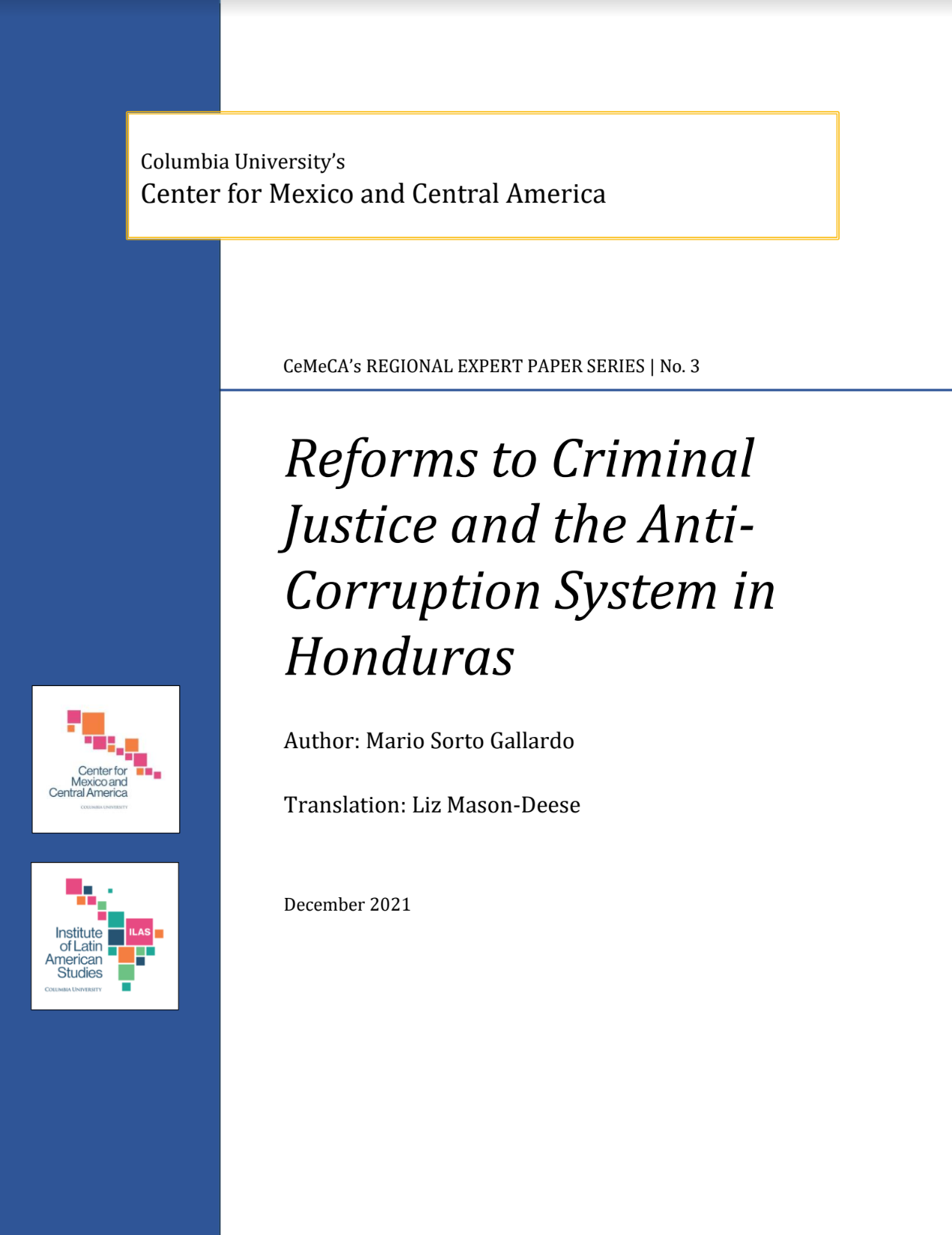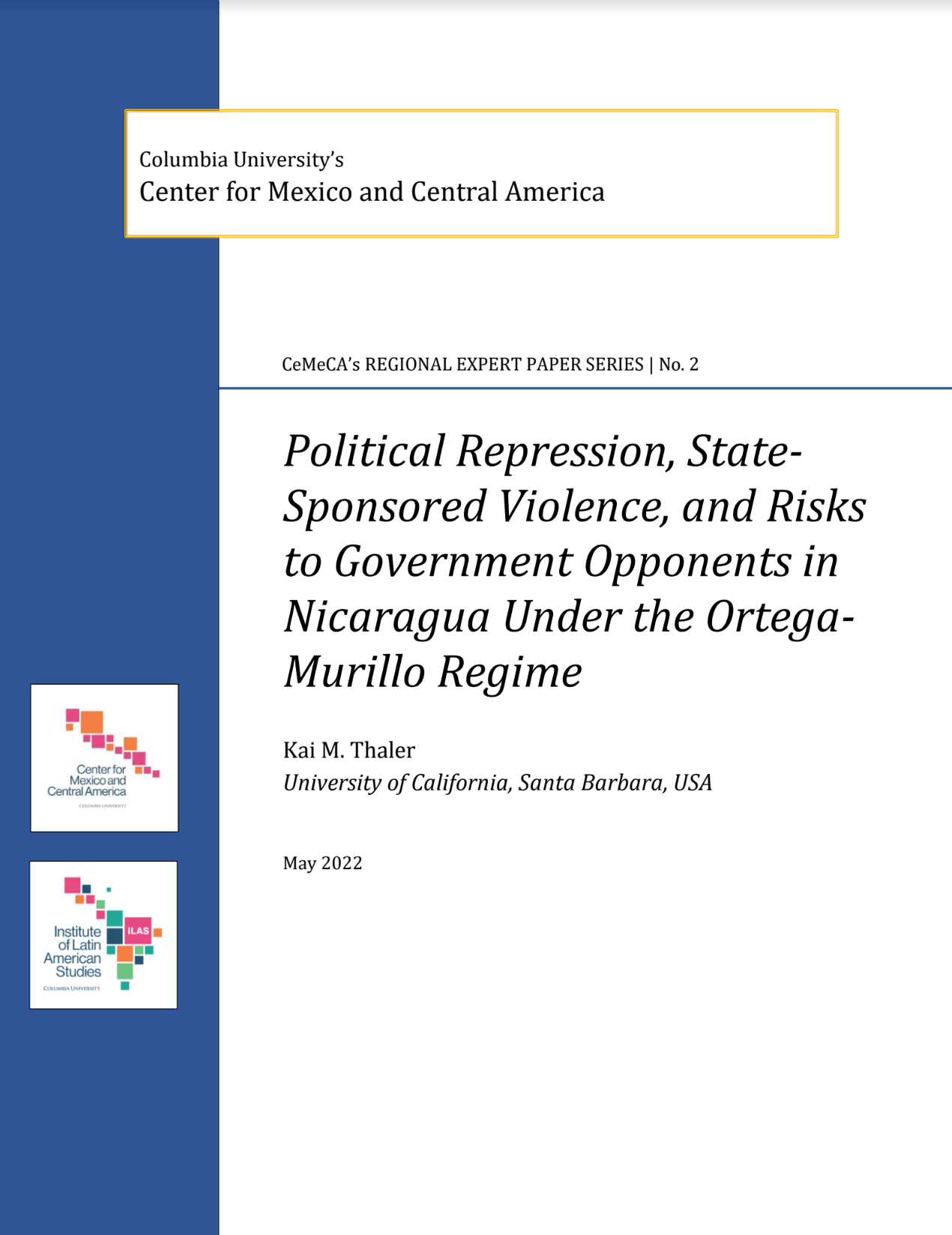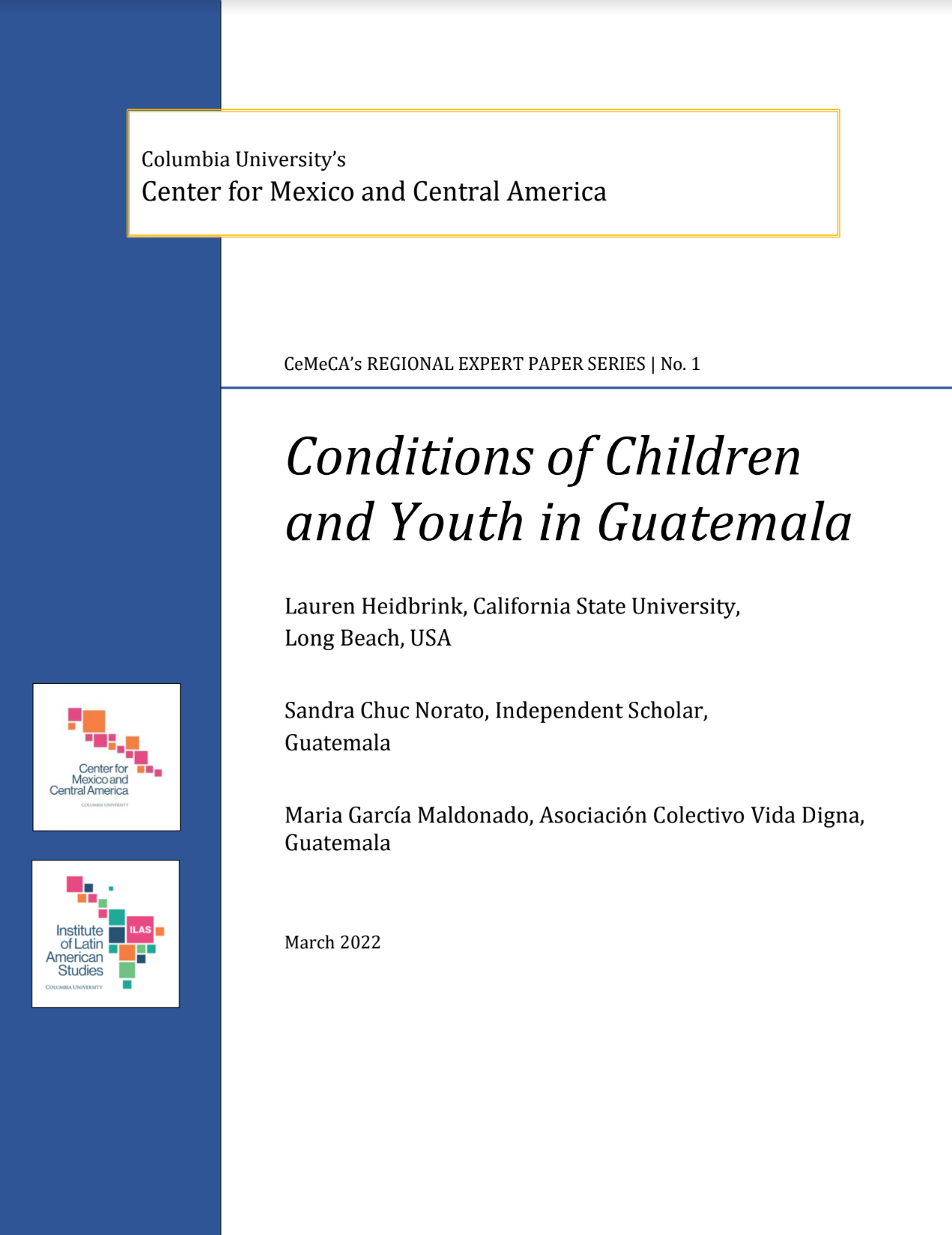Regional Expert Paper Series
The Regional Expert Series is an initiative to CeMeCA that seeks to make timely academic research within and about Central America and Mexico accessible to broad, interdisciplinary, and multilingual publics.
- For Researchers: We publish short empirical papers, reports or briefs that explain contemporary conditions in the region. The series is committed to rigorous peer-review while facilitating timely dissemination of pressing social, political and institutional issues in Mexico and Central America. All publications are published open-access and in English and Spanish.
- For Central American and Mexican Research Centers: This initiative aims to translate select reports, papers, and data from research centers in Central America and Mexico that would otherwise not be available to an English language audience. Researchers and research centers retain copyrights.
- For the Public: The initiative aims to produce high quality, accessible data from the region that is useful to academics, journalists, policy makers, attorneys, students and others with an interest in understanding the nuanced conditions in Central America and Mexico.
The Expert Series is curated by anthropologists Amelia Frank-Vitale (Barnard) and Lauren Heidbrink (CSU-Long Beach), under the direction of CeMeCA director Nara Milanich. To contribute, please see our CFP and email: Amelia Frank-Vitale at [email protected] and Lauren Heidbrink at [email protected].
For more information about the series, please see this Call for Papers.
11. Vulnerabilities of Deportation to Northern Mexico Associated With Long-time U.S. Residence, Heroin Use, or Gang Identities
This report examines vulnerabilities of deportation from the United States to northern Mexico through two lenses: 1) broadly, that of deportation for all people and, 2) more narrowly, that of long-time U.S. residents, heroin users, and gang-identified people. The report aims to elucidate the hardships of life after deportation as well as suggest the limited means people have to attenuate them by drawing on social, economic, and cultural resources. Moreover, it gives special attention to specific classes of people—long-time U.S. residents, heroin users, and gang-identified people—who face compounding vulnerabilities in the United States and in northern Mexico. The area surrounding 1,954 miles of U.S.-Mexico border contains tremendous diversity. This report describes generally the conditions of these northern Mexican receiving communities and recognizes the structural dynamics shared among them.
10. Analysis of Executive Decree PCM-29-22 (The State of Exception)
Report by the Honduran Human Rights Commission (CONADEH) on the first period of the country's "State of Emergency" decree. The data analyzed here show a serious discrepancy between the information that was being officially communicated by the National Police to the public and the data that CONADEH has been able to verify. This includes evidence that 95% of detentions during this period were for minor offenses, and only 1% of detentions were related to the crime of extortion (which was, officially, the rationale for the suspension of rights that came with the Decree.) In addition, the identities of some people detained were not recorded, and detentions occurred far beyond the zone designated as part of the Decree. It is highly worrying for CONADEH that in view of these data, the State of Emergency has been extended. This extension necessarily implies two scenarios: either 1) these data were not analyzed, meaning the State's duty to build a broad and sufficient justification capable of arguing the suitability, necessity, and proportionality of the extension of the measure was not taken seriously; or 2) the information presented here was ignored, constituting an excessively discretionary decision on the part of the corresponding authorities.
9. Behind the Glowing Headlines: Social Science Analysis of the State of the Exception in El Salvador
In response to a rampage in which members of the Mara Salvatrucha (MS-13) murdered 92 people during a three-day period between March 25 and 27, 2022, Salvadoran President Nayib Bukele declared a 30-day Régimen de Excepción (State of Exception), an emergency decree the Asamblea Legislativa (the Salvadoran congress) approved without debate and has renewed every month since. The State of Exception, which thus far has resulted in the arrest of nearly 70,000 Salvadorans, has been hailed as a success by government officials, and has received widespread support from the Salvadoran public. Indeed, the State of Exception has reduced visible gang activity in many parts of the country. However, this paper demonstrates that these gains are not uniform across El Salvador and there is little or no basis for concluding that they will be sustainable over time. Moreover, this quieting of gang activity has come at the cost of systemic and massive human rights abuses, the destruction of the rule of law, and the undermining of democracy itself. Still, international news outlets continue to produce journalistic accounts erroneously asserting that the decreased visibility of gang activity throughout El Salvador and President Bukele’s considerably high approval ratings among Salvadorans mean that he has successfully vanquished the gangs. This report unequivocally shows that gangs have not been exterminated and that additional dangers continue to threaten the lives of many Salvadorans.
8. Conditions of People with Mental Illness and Psychosocial Disabilities in Mexico
For over a decade, civil society organizations, independent investigators, researchers, and international governance agencies have documented abuses within Mexico’s public psychiatric system and have drawn attention to widespread discrimination against people with psychosocial disabilities in Mexico. The Mexican government has made multiple pledges to reform its mental health system over the past 15 years. It also has a legal obligation to protect its psychosocially disabled population and provide forms of community-based mental health care throughout the country. Nevertheless, Mexico still has a psychiatric system that operates according to an outdated institutional model wherein people with psychosocial disabilities are vulnerable to abuse, torture, and indefinite institutionalization without hope of release. Based upon empirical research by psychological anthropologists in Mexico, this report provides an overview of the conditions for people with psychosocial disabilities in Mexico, including an account of the country’s mental health care system and psychiatric services, mental illness epidemiology rates, social conditions for people with psychosocial disabilities, conditions in public psychiatric institutions, and attempts to reform the psychiatric system.
7. Any of Those Things Can Be True: Layers of Identity and Risk Factors for Social Violence in Guatemala
In an age of neoliberalization, rapid urbanization, spreading crime, impunity, and lawlessness, social violence has reached crisis levels in postwar Guatemala. Drawing on new research on social identity, this piece explores understudied demographic sectors denigrated with a variety of slurs, whose members run an outsized risk of suffering violence, including: forced childhood labor, gang recruitment, extortion; forced child marriage and abduction; and human trafficking and sexual exploitation of all kinds. Marked by new kinds of social identities overlaid upon older ones, they are among the least powerful and most vulnerable people in Guatemalan society. This essay argues that only by considering layers of relational identity, built up over time, can we begin to accurately understand individuals’ positionality in Guatemalan society, and thus make cogent analyses of the forms of discrimination and/or persecution they confront.
6. Indigenous Education and COVID-19 in Guatemala
The majority of youths migrating from Guatemala to the United States are Indigenous. This is significant. Indigenous identity influences the types of social and structural barriers youth confront in their home communities, as well as their experiences on the migrant trail and in the United States. The ways indigeneity impacts youth migrants and their premigration experiences is particularly relevant when considering their educational pathways in Guatemala. This paper aims to clarify the educational conditions for Indigenous children and youth in Guatemala. In this article, the author outlines the enduring history of Indigenous disenfranchisement in the public education system and presents the logics and rationales of non-attendance for Indigenous families. To conclude with an update on how the COVID-19 pandemic has had lasting and injurious effects on Indigenous youth and their educational opportunities.
5. ZERO TOLERANCE
Atrocity Crimes Against Migrant Children and Families in the United States: An Accountability Framework for Family Separation
In the spring of 2018, United States citizens bore witness to the unfathomable: children, toddlers, and even breastfeeding infants were ripped screaming from their parents’ arms by U.S. immigration officials and then disappeared into government detention. The events that took place shocked the collective conscience, moving American mothers to march with their children to government immigration offices across the country to demand a halt to the program. The global community cannot allow the Trump Administration’s policy of family separation to be accepted as a legitimate government immigration policy. Instead, it is imperative to recognize that the policy of family separation, and the manner in which parent-child separations were carried out, constitute crimes against humanity.
4. The Democracy Crisis in El Salvador: An Overview (2019-2022)
This paper examines the current democratic breakdown in El Salvador, identifying factors and events in the country from 2019 to 2022 that have led to democratic backsliding, the process by which democracy as a political system loses traction. Indicators of backsliding show that El Salvador’s shared characteristics of liberal democracy — free and fair electoral procedures accessible to all; freedoms of the press, to assembly, and to express political opinions; the rule of law; and basic human rights protections — are in peril. Given the events of the last several years under President Nayib Bukele, El Salvador’s regime more closely resembles democratic failure facilitated by populist authoritarianism rather than one of democratizing momentum that it embodied in the first part of the twenty-first century.
3. Reforms to Criminal Justice and the Anti-Corruption System in Honduras
The Centro de Estudio para la Democracia (CESPAD), with support from Open Society Foundations (OSF), carried out archival and empirical research from February 2021 to September 2021 focusing on the development of proposals to reform public policies in the area of criminal justice and the design of the national anti-corruption system in Honduras. This research investigates three elements: the main legislative obstacles to legal anti-corruption action; the alternatives or possibilities for the legal and institutional dismantling of those obstacles, through reforms or laws; and proposals for the legal or institutional design of an effective national anti-corruption system, taking the recent report of the Inter-American Court of Human Rights (IACHR) on Corruption and Human Rights (2019) as a reference.
2. Political Repression, State-Sponsored Violence, and Risks to Government Opponents in Nicaragua Under the Ortega- Murillo Regime
When Daniel Ortega returned to the presidency in Nicaragua in 2007, winning elections over two decades after he and the revolutionary Sandinista regime left power, many in Nicaragua and abroad were hopeful. However, Ortega gradually dismantled Nicaragua’s fragile democracy, establishing a competitive authoritarian regime in which political competition and freedoms of speech and assembly were restricted to ensure that Ortega and his FSLN party could not lose power—though state violence remained relatively limited. When popular protests erupted in 2018, this changed; the government launched waves of brutal violence against protesters and suspected government opponents. This paper examines the Ortega-Murillo government’s gradual dismantling of Nicaragua’s fragile democracy, the establishment of a competitive authoritarian regime, the recent intensification of political violence, and what this means for Nicaragua, Latin America, and democracy as a whole.
1. Conditions of Children and Youth in Guatemala
Over the last decade, Guatemalan minors have been the largest group of migrant young people entering Mexico and the United States. This report illustrates the complex structural reasons spurring young people’s migration from Guatemala. It examines the underlying conditions of children’s lives in Guatemala, highlighting the relevant laws, policies, and institutional practices that shape the everyday lives of children and youth and lead to their migration. It pays particular attention to Indigenous children and youth, who make up an estimated 70 to 95% of young people (accompanied and unaccompanied) migrating from and deported to Guatemala. Drawing from the authors’ experiences in Guatemala as researchers, attorneys, and practitioners, the report explains how ‘laws on the books’ may conflict with ‘laws in practice,’ identifying where the Guatemalan government is either unwilling or unable to ensure basic protections and rights.

